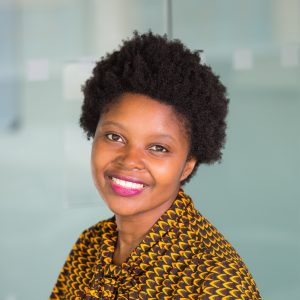person
Mutale Nkonde

Mutale Nkonde was a Non-Resident Fellow at the Digital Civil Society Lab (2019-2020, 2020-2021).
She is currently the Executive Director of AI for the People a non profit that seeks to use popular culture to educate Black audiences about the social justice implications of the use of AI Technologies in public life. She is also a fellow at the Berkman Klein Center for Internet and Society at Harvard Law School and prior to this she was an AI Policy advisor and was part of a team that introduced Algorithmic Accountability and Deep Fakes Accountability Acts to the US House of Representatives as well as the No Barriers to Biometric Barriers Act. Her work sits at the intersection of race and technology and she is fascinated by how the ideas that uphold systemic racism in the analogue world are advanced and reproduced through the design and deployment of advanced technical systems. Nkonde’s work has been featured in the New York Times, Fast Company and Harvard Business Review and she speaks widely on these issues.
Fellowship Impact
In the beginning of 2020, before the pandemic, Mutale Nkonde thought the organization she envisioned, AI for the People, would be a policy shop. As public, philanthropic and media attention grew around both the movement for Black Lives and our digitally dependent, ever-surveillant world during pandemic conditions, Nkonde realized that the organization would best build not only from her policy expertise but from her experience as a former television journalist. Communications and narrative work precedes and informs policy, and that’s where AI for the People has been making a difference.
At a time when the racialized harms of technology are finally getting center stage attention, Nkonde says people not only began to understand what it is that she and her colleagues in the fellowship do, but they became genuinely interested in it. During her fellowship Nkonde’s research on the racialized nature of election disinformation, and her work to ban facial recognition technology has garnered attention from companies, lawmakers, and the New York Emmy Awards. She also built strong relationships across academia, engaging with colleagues at Stanford Law Stanford Engineering, Brown University, the Data Science Institute at Columbia University, and the Monk School of Policy at McGill University.
